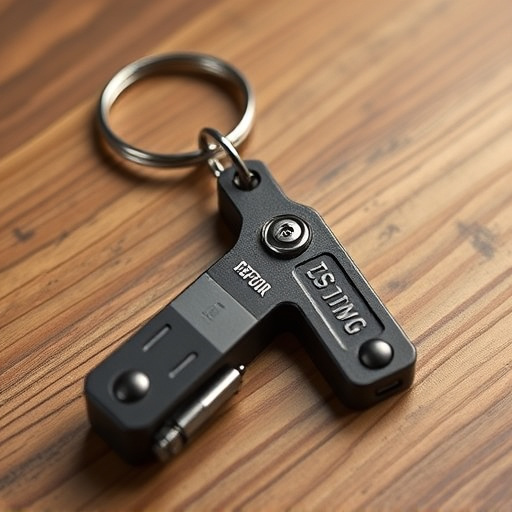Creating a tactical keychain from titanium offers superior strength, durability, and corrosion resistance for outdoor adventurers and those in need of self-defense. Choosing the right alloy like Ti-6Al-4V ensures reliable performance while adhering to legal regulations on self-defense tools, crucial for regions with specific restrictions on blade length and locking mechanisms. An ergonomic design with secure gripping mechanisms provides comfort, control, and legality for tactical keychains intended as weapons.
In today’s world, tactical keychains are more than just functional accessories—they can serve as powerful self-defense weapons. For those seeking a robust and legal defense option, a titanium tactical keychain offers an appealing blend of strength and portability. This article guides you through the essential design tips for crafting a secure grip on your titanium tactical keychain, ensuring comfort and effectiveness in self-defense scenarios. We’ll also explore legal considerations to help users stay within regulations governing self-defense weapons, focusing on key aspects like material choice and compliance.
- Choosing the Right Titanium Alloy for Your Tactical Keychain
- Designing a Comfortable and Secure Grip for Effective Defense
- Legal Considerations: Understanding Regulations on Self-Defense Keychains
Choosing the Right Titanium Alloy for Your Tactical Keychain
When crafting a tactical keychain, selecting the appropriate titanium alloy is paramount. Titanium is renowned for its exceptional strength-to-weight ratio, making it an ideal choice for durable and reliable keychains designed for outdoor enthusiasts, military personnel, or those prioritizing self-defense. Opting for high-quality titanium alloys ensures your keychain can withstand rigorous use, from opening tight spaces to serving as a potential weapon in emergency situations, all while maintaining legal compliance with regulations regarding tactical gear.
For a Titanium Tactical Keychain Weapons, consider grades like Ti-6Al-4V or even more specialized alloys tailored for extreme conditions. These alloys offer enhanced corrosion resistance and mechanical properties, ensuring your keychain not only looks the part but also performs reliably in various environments. Remember, the right alloy choice can significantly impact both the functionality and longevity of your tactical keychain.
Designing a Comfortable and Secure Grip for Effective Defense
When designing a metal defense keychain, comfort and security should be top priorities for effective self-defense. The grip should be ergonomically designed to fit snugly in the hand, reducing slippage during stressful situations. Incorporating textured surfaces or contoured shapes can significantly enhance grip strength. Consider using materials like titanium, known for its durability and lightweight properties, to ensure the keychain is tactical yet comfortable to hold. Legal restrictions on self-defense tools vary by region, so it’s crucial to design the keychain with these guidelines in mind, ensuring it remains within legal boundaries.
A secure grip not only enhances usability but also adds a layer of protection. The keychain should be designed to prevent accidental deployment and ensure that it can only be activated by the intended user. This includes implementing reliable locking mechanisms and safe release features. By focusing on these aspects, you create a versatile titanium tactical keychain weapon that is both legally compliant and effective for self-defense purposes while maintaining comfort and control.
Legal Considerations: Understanding Regulations on Self-Defense Keychains
When designing or considering a metal defense keychain grip, it’s crucial to understand the legal considerations surrounding self-defense weapons. Each jurisdiction has its own regulations on what constitutes a legal self-defense tool, especially when incorporated into everyday items like keychains. In many places, titanium tactical keychains designed for self-defense must adhere to strict guidelines to remain within legal limits.
The legality of such devices often hinges on factors like blade length, overall size, and purpose. While some regions permit small, foldable blades on keychains for personal protection, others may restrict or ban them entirely. Titanium, known for its durability and lightweight properties, is a popular material choice due to its strength-to-weight ratio. However, ensuring that the final product meets legal standards for blade length and locking mechanisms is essential before marketing or carrying such a keychain as a self-defense tool.
When crafting your ideal titanium tactical keychain weapon, balancing functionality, comfort, and legal compliance is key. By selecting the right alloy, designing an ergonomic grip for secure control, and staying informed about regulations governing self-defense keychains, you can create a powerful tool that enhances personal safety without compromising legality. Remember, knowledge is power, especially when it comes to protecting yourself and understanding your rights in the modern world.
